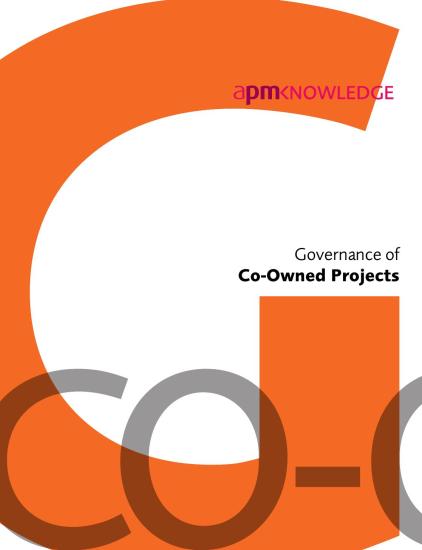Rating: Not rated
Tags: Project Management, APM, Lang:en
Summary
Many large, complex projects cut across organisational
structures that work for organisations when they are in
‘business-as-usual’ mode – project success
requires multiple organisations to voluntarily collaborate
and work together in he interests of delivering the project,
and therefore to not focus solely on their organisational
interests.
There are of course, numerous benefits that can arise
from organisations jointly working on projects – such
as capitalising on complementary assets and skills, sharing
costs and resources, diluting risk, and learning from the
good (and bad) practices of others. It is however inherent
that joint working means more than one organisation has the
right to make decisions that affect the project as a whole,
and so no single organisation has exclusive control. Such
projects are deemed to be co-owned, and it is the challenge
of how to govern the project in such circumstances, to the
satisfaction of different boards, that this guide attempts to
answer.
I have had the privilege of working on a number of
complex yet successful programmes – including both the
London 2012 Games, and delivering the long term legacy from
them – which can be regarded as co-owned. When we
established the governance arrangements for 2012 we could not
apply traditional project governance approaches as they
generally assume a single sponsor/ owner and therefore would
not adequately address co-ownership. Significant time, effort
and indeed trial and error went into setting up and refining
the vernance arrangements to address the complexities that
co-ownership brings. This guide would have helped our journey
and I am sure will help others facing similar
challenges.
This guide is succinct and is helpful to boards and
their advisors by providing a set of underlying principles
and associated considerations that can be assessed and
applied.
David Goldstone CBE
Chief executive
London Legacy Development Corporation
